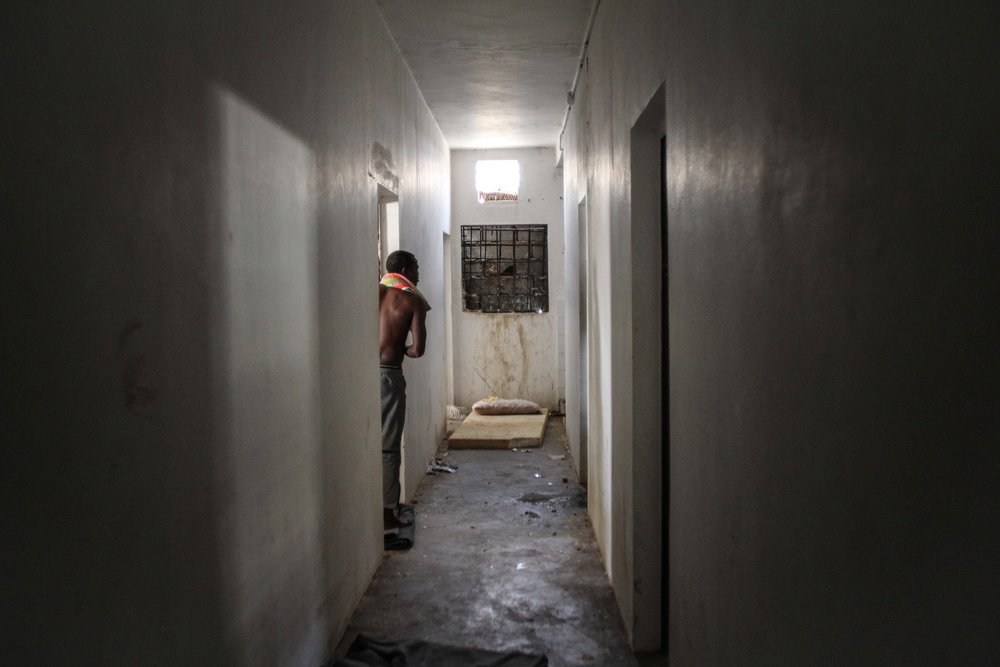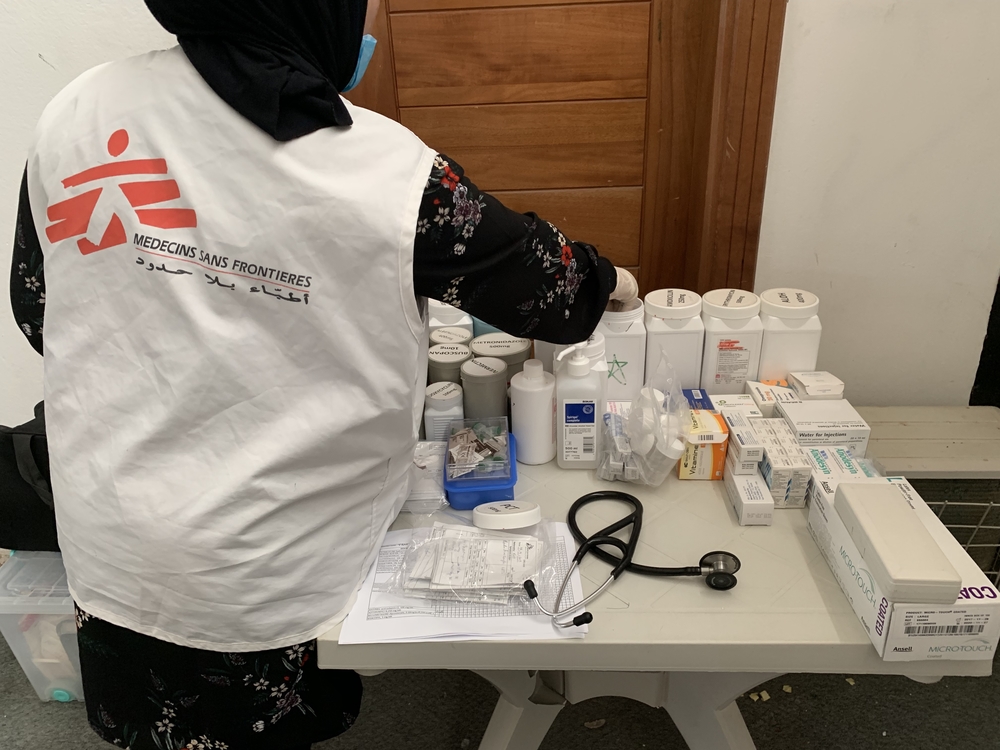Below the gloomy sky of Tripoli’s Janzour neighborhood, a woman steps out onto the terrace of her fifth floor apartment and carefully hangs a damp collection of colorful laundry to catch the morning breeze. Across the street, barbed-wire walls block both her eyesight and the fresh air alike from falling upon the raggedy shirts and upside down shoes hanging from the dirty walls inside Anjila detention centre, where more than a hundred refugees and migrants are locked within.
Outside, the team of MSF health workers that I have been with over the past six months arrives to the heavily guarded detention centre with medicine, supplementary food rations, and a carton full of notebooks. The day’s objective: attempt to treat both the physical ailments and the vital mental health needs of refugee and migrant detainees. These people suffer from a variety of cases which are all exacerbated by the poor and inhumane conditions of their detention, but some of the most obvious are increasing bouts of fear, anxiety, insomnia and depression.



